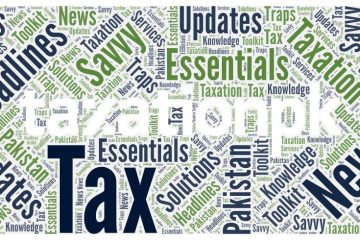Operating a business in Punjab that provides taxable services involves significant responsibilities, particularly concerning Sales Tax administered by the Punjab Revenue Authority (PRA). Understanding and adhering to the PRA’s regulations, from initial registration to potential deregistration, is crucial for legal compliance and the financial health of your business. This guide consolidates key aspects of PRA Sales Tax management.
PRA Sales Tax Registration
Before providing taxable services, registration with the PRA is often mandatory. This ensures compliance with the Punjab Sales Tax on Services Act, 2012 (PSTS Act 2012) and avoids penalties.
Required Documents
While specific needs vary by business structure (Individual, AOP, Company), general requirements include:
- Registration Application Form
- Taxpayer Identification (NTN certificate, CNIC/Director CNICs)
- Company/Partnership specific documents (SECP registration, Form 29, Partnership Deed)
- Business Registration/License
- Proof of Business Premises (Utility bills, ownership/tenancy proof)
- Financial Documents (Bank account certificate, recent statements)
- Business Letterhead Copy
Process: Documents can often be scanned and submitted online (ZIP format) to the PRA’s official email. Ensure all documents are clear, legible, and consistent (name/address match across documents). Keep copies for your records.
Taxable Value of Services in Punjab
Calculating the correct Sales Tax requires determining the taxable value of your services accurately as per the PSTS Act 2012.
- General Rule: The taxable value is the total consideration (price/charges) received, including federal/provincial taxes, but excluding the Sales Tax amount itself.
- Special Scenarios:
- In-kind Payments: Use the service’s open market price (excluding tax).
- Related Parties/Free Services: Use the price charged to unrelated parties or the open market price (excluding tax).
- Trade Discounts: The discounted price (excluding tax) is acceptable if standard business practices are followed.
- Unclear Value: The open market price may be used if the declared value seems inaccurate.
- Authority Intervention: The PRA can notify specific values for certain services; this official value must be used if it exceeds the actual price charged. The value of accompanying utilities/facilities is generally included.
Filing PRA Sales Tax Returns
Timely and accurate filing in Punjab Revenue Authority is a cornerstone of compliance.
- Legal Compliance: Avoids penalties, fines, and legal issues under the PSTS Act 2012.
- Financial Health: Encourages good record-keeping and prevents tax liability build-up.
- Transparency: Contributes to a fair tax system.
Due Dates of PRA Tax Returns
Deadlines of filing sales tax returns in Punjab vary and listed below;
- Most Sectors (Hotels, Clubs, Caterers, Advertising etc.): Payment due by the 15th, filing due by the 18th of the following month.
- Telecommunication Sector: Payment and filing due by the 21st of the following month.
- Post-paid Telecom Services: Payment and filing due by the 21st of the second month following the tax period.
Online Filing via PRA Portal
- Login: Access the PRA portal with your username/password.
- Enter Invoices (Sales Ledger):
- Click “Add Invoice.”
- Enter buyer’s CNIC/NTN.
- Select Invoice Type: “Sales Invoice” (regular) or “Sales Tax Withheld Invoice” (if buyer withheld tax).
- Input details: Invoice number, date, service type (HS Code), sales amount (excluding tax). The system calculates the tax.
- For withheld invoices, enter the withheld tax amount in the designated field.
- Save each invoice.
- File Return (Declaration Tab):
- Find the relevant Sales Tax Return form.
- Use “Load” or “Fetch” to import invoices from the Sales Ledger.
- Review the summary.
- Finalize (Exerc Tab): Review totals, claim withheld tax (if applicable), and finalize.
- Submit: Click “Submit” in the Declaration tab after verification.
Addressing Errors:
- “Submit Annex C1 First”: Check other portal sections for underlying issues.
- “Unverified Sales Tax Withheld Invoices”: Contact your buyer to approve the withheld invoice on their PRA account.
Extensions and Revisions in PRA
If you need more time, use the PRA’s online system via the IRIS portal, introduced as part of Pakistan’s digitalization efforts.
- Login: Access the PRA IRIS portal.
- Navigate: Go to Sales Tax > Extension Applications > 35 (Application for Extension…).
- Fill Form: Provide Tax Period, reason for extension, and attach supporting documents.
- Submit & Track: Submit the application and monitor its status in your “Inbox” or “Completed Tasks.”
- Approval: Notification of approval and the new deadline will appear on the portal and via email.
Revise PRA Tax Returns
Errors in filed returns can be corrected within approximately 120 days.
- Login: Access the PRA-IRIS portal.
- Navigate: Go to Sales Tax > 35 (6) Application to Revise Sales Tax Return.
- Draft & Submit: Prepare and verify a corrected draft, then submit the revision application.
- Documents: Attach necessary supporting documents.
- Approval & Payment: Await approval. Pay any additional tax resulting from the revision.
Paying Your Sales Tax – Using the PRA-IRIS Portal
The PRA-IRIS portal facilitates online tax payments. You can follow these easy steps to create a Payment Challan:
- Login: Access the PRA-IRIS portal.
- Navigate: Find and click “Create Payment”.
- Select Tax Type: Choose “Sales Tax” or “Sales Tax Withheld.”
- Enter Details: Specify Registration Type, Tax Period (Year/Month), and the exact Amount.
- Verify & Submit: Review details and submit.
- Payment Method: Choose your preferred method (online banking, card etc.) and follow instructions.
Claiming PRA Withholding Tax (WHT)
If clients deduct WHT (an advance tax) from your payments, you can claim it to avoid double taxation. Process of claiming PRA WHT is;
- Be Registered: Ensure you have your PRA e-Enrollment ID and password.
- Collect WHT Certificates: Obtain these from clients showing the deduction details.
- File Return: Declare total sales, applicable tax, and tax deducted at source on the PRA portal.
- Adjust WHT: Enter WHT details in your return; the system adjusts your net liability.
- Submit & Keep Records: Submit the return and retain WHT certificates for potential audits.
Tax Fraud & Suspension in PRA
Tax Fraudis defined as any knowing, dishonest act to unlawfully evade or reduce tax liability. Examples include:
- Operating without registration.
- Falsifying or issuing invoices for non-existent services.
- Failing to pay collected/withheld taxes.
- Understating liability or not filing returns.
Prevention: Register, maintain accurate records, issue correct invoices, pay dues promptly, and seek professional help if unsure. Tax fraud carries serious consequences.
Suspension: The PRA may temporarily suspend registration for suspected non-compliance or ineligibility. You’ll receive a notice to rectify issues. Failure to comply can lead to formal suspension (often 60 days), which is temporary, unlike permanent deregistration.
Deregistration in PRA
You may need to deregister if your business ceases operations, no longer meets registration criteria (e.g., turnover threshold), or changes to a tax-exempt model.
- Methods: Voluntary application or automatic deregistration by the PRA.
- Voluntary Process: Submit a deregistration application form with supporting documents (CNIC, business proofs, closure evidence, bank statements, past returns, tax clearance certificate, reason statement) to the PRA.
- Important: Settle all outstanding tax liabilities before applying. The process can take up to three months or more. Keep copies of everything.
Tax Liability During Company Closure
When winding up a private company or business enterprise in Punjab:
- Liable Parties: Owners, partners, and directors are held responsible for unpaid taxes.
- Joint and Several Liability: The PRA can recover the entire outstanding tax amount from any single liable individual.
- Action Plan: Conduct a tax audit, clear all PRA dues, and seek professional advice before finalizing closure to avoid penalties and legal action.
Staying Compliant: Best Practices
- Mark Calendars: Note all PRA due dates and set reminders.
- Maintain Accurate Records: Keep meticulous records of sales, expenses, and tax calculations.7
- Seek Professional Guidance: Consult a tax advisor familiar with PRA regulations for personalized advice and complex situations.
By understanding these obligations and utilizing the PRA’s online systems, businesses in Punjab can manage their Sales Tax responsibilities effectively, ensuring compliance, contributing to a fair tax system, and maintaining their financial integrity.




